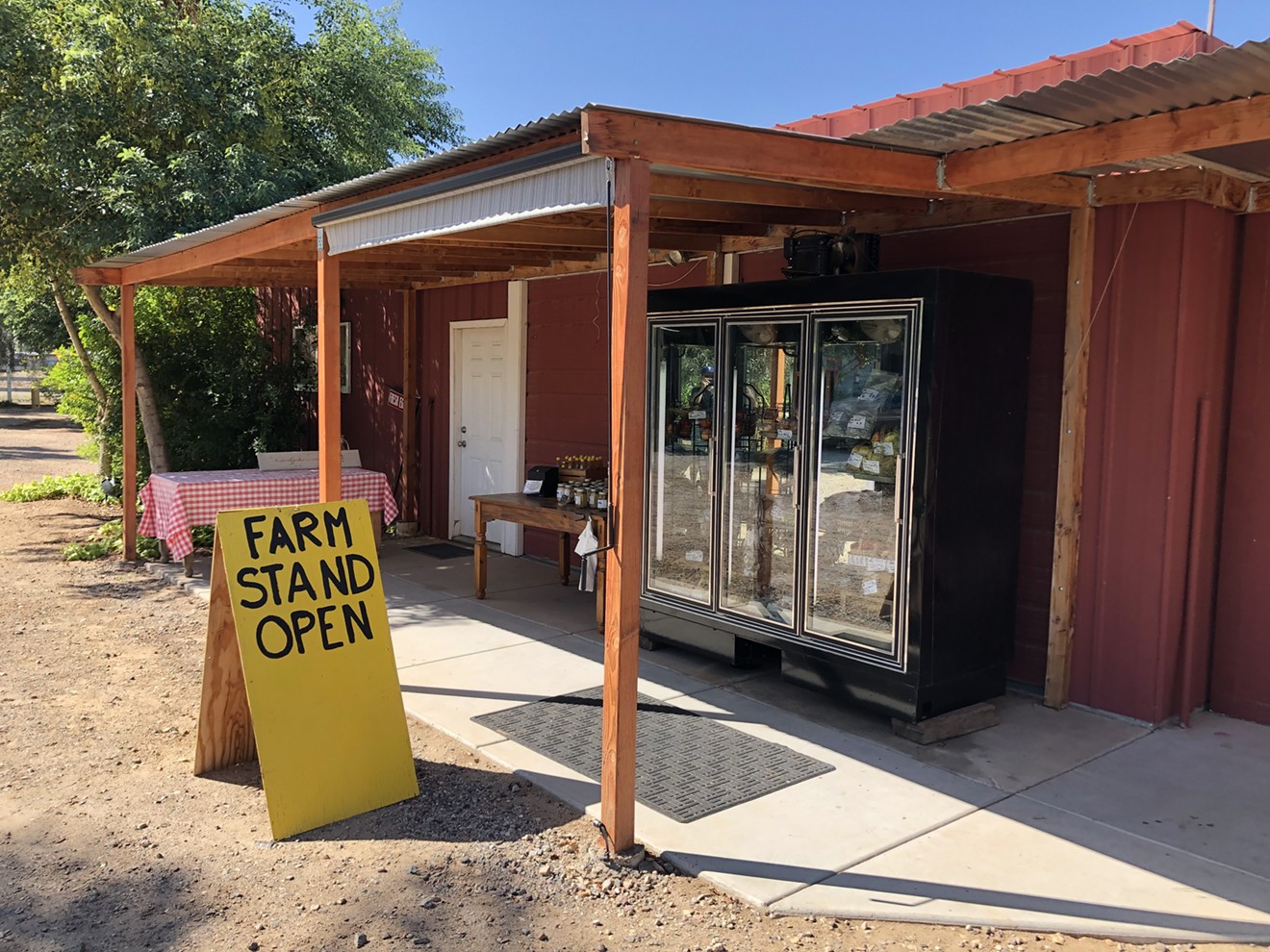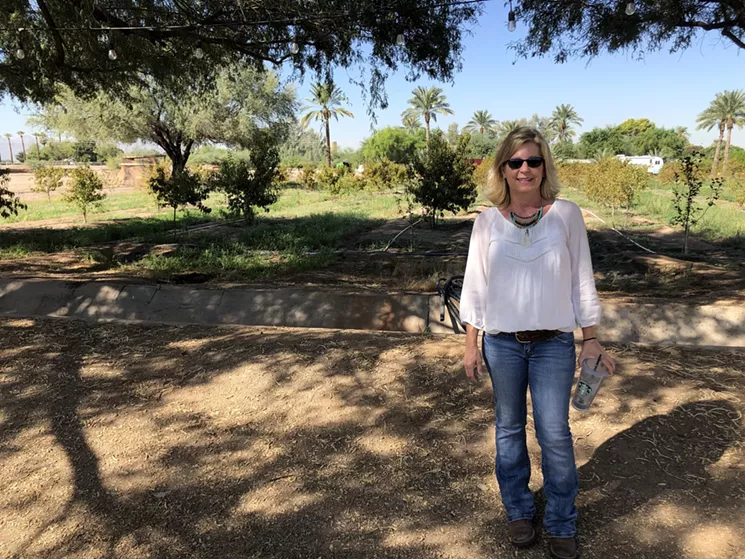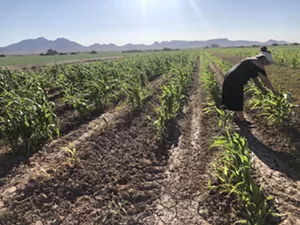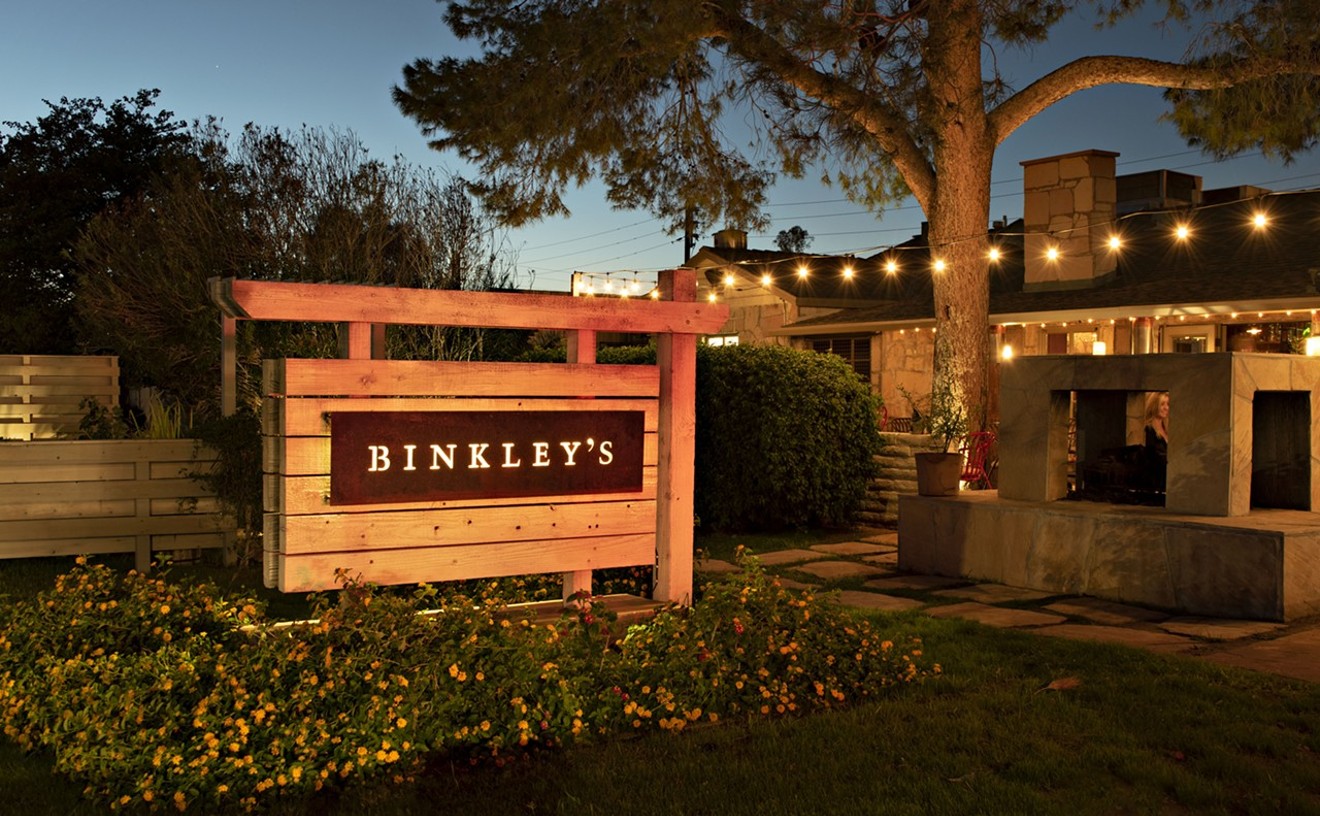Dave Jordan is a chicken farmer. Called “Dave the Eggman” by some, Jordan raises fowl on five acres in New River, Arizona. His property is called Two Wash Ranch. If you eat in Arizona, you’ve most likely seen the name. Jordan’s birds are some of the best in town, and you can find them at virtually every top-tier restaurant. He feeds birds, slaughters them, and delivers them personally, planning ahead for dozens of restaurants a week.
Taking care of the 6,000 chickens on his farm at any given time takes a lot of money. Jordan’s chickens eat $20,000 in feed every few weeks, or around $3,000 per week. It also takes a lot of labor. Jordan has a staff of one full-timer and four part-timers. Even so, he works so much that, many nights, he only gets four hours of sleep.
For many years, his high-wire operation was going smoothly. But now, like many small farmers, Jordan’s life and business model are facing a colossal obstacle that is disrupting food systems on every level: COVID-19, the coronavirus and its spread, lethal to human life and financial stability.
“You texted me early Monday, and I said ‘Yeah, everything was pretty good,’” Jordan says. “By the end of today [Tuesday], people were trying to cancel and I was saying, ‘Guys, I already processed my birds.’”
Jordan sells almost exclusively to restaurants. Because of the virus, the city of Phoenix has limited all restaurants to takeaway and delivery for the near future. Jordan sells his birds beyond Phoenix proper, but restaurants in the surrounding towns are going the way of those in the city. “Right now, I have eight possible people who will take chickens next week,” Jordan says. “But I think that will be zero.”
Dave Jordan isn’t the only local farmer facing immense financial hardship due to the virus. Just about every farm we surveyed, nearly a dozen in total, has seen a sales decline.
This decline has stemmed from the shuttering of restaurants. It has arisen from the closure of farmers’ markets, like Uptown Phoenix Farmers Market, which just canceled its midweek farmers market, the biggest in greater Phoenix. A few highly specialized farms are seeing similar business as before the virus, like Ramona Farms (celebrated for Akimel O'odham and Tohono O’odham crops) and Grain R&D (heirloom grains). These are outliers. Others are struggling.
In short, central Arizona, home to ambitious farming for thousands of years going back to the Ancestral Sonoran Desert People, is now seeing a grave imminent threat to its small agriculture.
Bob McClendon, one of the most esteemed farmers in the Valley, keeps large, diverse plots in Peoria and Goodyear. He's a farmers market fixture, wearing his cap at the Old Town Farmers Market on Saturdays, talking to customers between rows of Romanesco, honey, dates, and purple potatoes.
McClendon says the virus is “temporarily destroying” the McClendon Organics Selects business model. “We will recover,” he says, assessing the situation from its earliest days. “But financial loses will be felt many months later.”
Janna Anderson, of Pinnacle Farms in Laveen, is facing similar troubles.
“We’re seeing a lot of restaurants canceling,” she says. “I’m losing probably 70 percent of my regular orders this week. Last week we didn’t finish filling our orders because of the rain, so we missed last week and this week is the friggin’ apocalypse.”
She says her troubles are exacerbated by where we are in the local agricultural cycle. Spring is high planting season. Seeds need to go into the ground now. On top of cratering demand, the rain has frustrated planting. “We’re desperately trying to get seeds in,” Anderson says. “We’re literally underwater.”
Mark Rhine of Rhiba Farms in Queen Creek is having his own issues planting. He does markets, farm boxes, and restaurants. He normally delivers to restaurants on Wednesdays and Thursdays. “I [usually] have 18 to 25 restaurants on those days, depending on who’s ordering,” he says. “Right now, I have two [on Wednesday] and two Thursday.”
He says the sales plunge will curb his cash flow, hindering his ability to pay his workers to plant spring seeds.
With slow restaurant sales and the prospect of farmers markets closing, he lacks the channels to sell all of his produce. “My biggest weakness is I don’t have the ability to get my food out in the streets,” he says. “I don’t have the manpower. That’s going to limit my capabilities.”
Rhine is quick to note that he’s still working. “The farmers are still farming,” he says. McClendon is still farming. Anderson is still farming. So are the folks at Grain R&D. So are the great people of Ramona Farms, who are bracing for, Brandy Button says, a drop in crop prices that will soon be “really hurting us all.”
Right now, farms are still in the early days of the COVID-19 crisis. This is all just happening, and the picture already looks grim. Restaurants need your help, yes, and this has been very widely discussed at local and national levels. But local farmers also need support.
They need the support of cities, which can give permission for markets to stay open with sets of rules leaving room for social distancing, allowing for safe shopping. They need your financial support, so consider the little guys. They're the heart and soul of our local foodways.
Some more tips? Follow farmers on social media (and here as we update) to track where their hard-grown produce, teased from the very land you live on, will be for sale. Pick up farm boxes, eat your vegetables, and track down a Two Wash Ranch chicken. Dave Jordan sells them through Arcadia Meat Market (the market just announced it's receiving 200 chickens this week from Jordan). He has started to speak with other vendors, too.
“Farming is a hard industry, no matter how big or small,” he says, after closing his work day on his five-acre ranch long after sunset. “I think all of us are going to have to find some other avenues to survive.”
Editor’s note: This article was updated from its original version.
[
{
"name": "Air - MediumRectangle - Inline Content - Mobile Display Size",
"component": "18478561",
"insertPoint": "2",
"requiredCountToDisplay": "2"
},{
"name": "Editor Picks",
"component": "16759093",
"insertPoint": "4",
"requiredCountToDisplay": "1"
},{
"name": "Inline Links",
"component": "17980324",
"insertPoint": "8th",
"startingPoint": 8,
"requiredCountToDisplay": "7",
"maxInsertions": 25
},{
"name": "Air - MediumRectangle - Combo - Inline Content",
"component": "16759092",
"insertPoint": "8th",
"startingPoint": 8,
"requiredCountToDisplay": "7",
"maxInsertions": 25
},{
"name": "Inline Links",
"component": "17980324",
"insertPoint": "8th",
"startingPoint": 12,
"requiredCountToDisplay": "11",
"maxInsertions": 24
},{
"name": "Air - Leaderboard Tower - Combo - Inline Content",
"component": "16759094",
"insertPoint": "8th",
"startingPoint": 12,
"requiredCountToDisplay": "11",
"maxInsertions": 24
}
]














